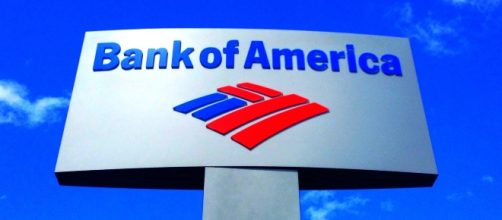American banks are often termed to be behind in technological innovation when compared with the banks in Europe, China, and Singapore due to the regulatory blockade. Over the past few months, leading banks across the world announced plans to use blockchain technology in various banking activities. Thailand's KBank announced digitizing contracts with blockchains by 2018 while Singapore Central Bank announced a two-phase project "Project Ubin" in association with Bank Of America Merrill Lynch, Credit Suisse, JPMorgan and Mitsubishi UFJ Financial Group to settle cross border remittances using blockchain technology.
Bank of America ahead in filing blockchain patents
The regulatory framework, however, seems not to have deterred Bank of America from heavily investing in R&D of blockchain technology. The North Carolina headquartered bank so far has 24 published patent applications. Over the past twenty days, the USPTO has published 7 patent applications filed by Bank of America in relation to blockchain technology. A set of three patent applications were published on July 27, 2017, while four more applications were published on August 10, 2017.
The applications published on July 27, 2017, focus on using distributed ledgers to validate the veracity of information with real-time identification information including an initial identification of the user.
While the four applications published on August 10, 2017, deal with the use of private and public blockchain network to record transactions, recording of the received information in a distinct dedicated Block Chain network and checking of the threshold deposit amount in order to request additional regulatory information based on threshold limit. It is quite obvious that these patent applications do overlap on certain aspects.
Abstract of two patent applications (20170230375, 20170230353) published on August 10, 2017, reads as follows:
"A distributed block chain network having at least a private block chain portion, and in some cases a public block chain portion, allows users to take actions (e.g., accessing, viewing, storing, disseminating, validating, or the like) with respect to event information associated with events.
In some aspects of the invention, the distributed block chain network with the private block chain portion may be utilized to verify events and separate the private information associated with the events from the public information associated with the events. As such, the present invention provides systems for centralized control of secure access to process data networks by utilizing a private block chain; and moreover, provide systems for control of secure access and communication with different process data networks with different security requirements by utilizing one or more block chains with private block chain portions and/or public block chain portions."
Blockchain patents and possible legal hurdles
Blockchains are essentially a shared, cryptographically secure ledger of transactions based on open source code.
Over past couple years, multinational corporations like Goldman Sachs, MasterCard along with Bank of America have filed number of patents in relation to blockchains. This race to lead the blockchain technology by arming with patents is expected to crop up legal disputes, as the entire blockchain infrastructure and innovation is essentially based on Open Source Code. A similar situation was seen in the case of Linux, an open sourced operating system where disputes arose quite often in relation to patents.


